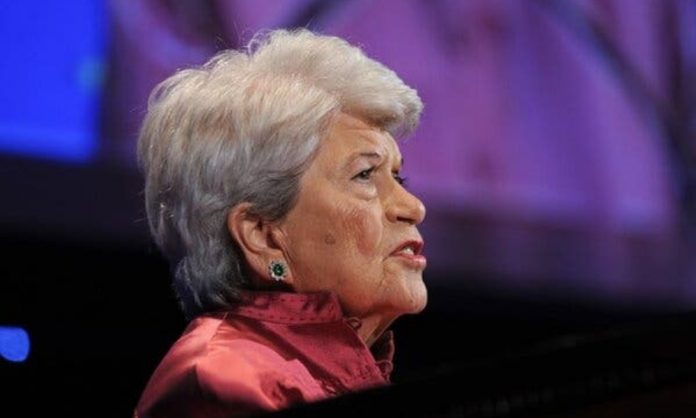Living on this side of the globe, owing to the image Hollywood has put up for us to chew and swallow, it’s fairly typical of us to think of the States as a perfectly civilized, woke society with freedom hanging off postboxes and ceiling fans. But let’s take it back seventy years – the corporate workplace, and subsequently, the ad industry too, was all testosterone driven suits and hats and ties, and Laurel Cutler emerged as the only female executive.
A Philosophy major at Wellesley College, Massachusetts, Cutler was a writer at heart. Her father, Aaron Smith Culter was a lawyer, and her mother, Dorothy Glaser Culter, a mathematician. She put her aspirations to pursue a career in literature as a novelist aside, adamant on never “prostituting her art for money.” She started off as a copywriter at J. Walter Thompson and forged ahead as an executive through a series of firms – Fletcher, Richards, Calkins and Holden, McCann Erickson, FCB, Falloon and finally, Chrysler Corporation’s Vice President.
The ad industry calls for the right mix of genius and madness, and Laurel Cutler was no distinction to this ideology. Whether it’s labelling a pasta sauce Prego owing to a hunch and sticking to it, followed by her iconic journey at Chrysler Corporation that included her role in acquiring American Motors and naming the iconic brand Jeep, or being straight with a tyre manufacturing client (something we should all take notes on) that coloring the product (tyres in this case) pink since women were the ones buying them for their family vehicles at that point in time, would not do the trick rather improving the product, assuring safety and reliability will. Needless to say, and as clichéd as this may sound, this happens to be a trailblazing notion that should necessarily stand out in the postmodern era – the right marketing will take you places, but only if your product is worth it!
“I want to be a good wife and mother”, was the response she gave a personal manager upon asking her lifelong ambition. The same manager entered her into a contest of aspiring writers, and as Cutler put, “Because I didn’t stress that much over it, I won the copy competition.” It is no shocker that the strong headed woman had her priorities aligned, as a professional, and as an individual. She married Stanley Bernstein, a lawyer, followed by divorce. She later married Theodore Israel. Her children followed in her family’s legacy of conventional high achieving standards – one is an editor at Harvard Business Review, another the Chief Executive at Alliance Bernstein, and the third a thriving businessman.
Like all creatives who make it to the ad world, the revolutionary was a calculated crazy. She took her hunches and observations, simultaneously – in her books, relying too much on numbers wasn’t all effective. “There is no data on the future,” she said. To put it in 2022, while technology is “literally” taking over our minds, and possibly shaping the future, it’s imperative to absorb the essence of the statement – machines may be able to think, but they can’t dream.
The more we read about Laurel Cutler’s prodigious accomplishments, its’ not hard to believe that the job at Chrysler made her as illustrious as her brother, a lawyer by profession, and advisor to Republican and Democratic administrations. This was the 1980s. She was named the Woman of the Year by the Advertising Federation of America and received the Woman in Communications Matrix Award for Advertising in 1985, and in the same decade, was named one of the eleven seminal figures of the 1980s by Fortune, the only woman on the list. The laurels did not stop here – amongst others she was called Madison Avenue’s most powerful woman by Inc. magazine in 1987 and in 2011, the American Advertising Federation Hall of Fame admitted her to its ranks.
In a 1987 interview, directing a body of brand managers, Cutler put, “We must help our customers find something to hang onto- to sink roots into. One hundred percent quality, real service, unique design, style – these are the product values that deliver the human values that never change: love, pride, joy, the family, self-esteem.”
Three and a half decades later, I’m sitting in the future and I can safely claim that she had so impeccably foreseen it. So long!
